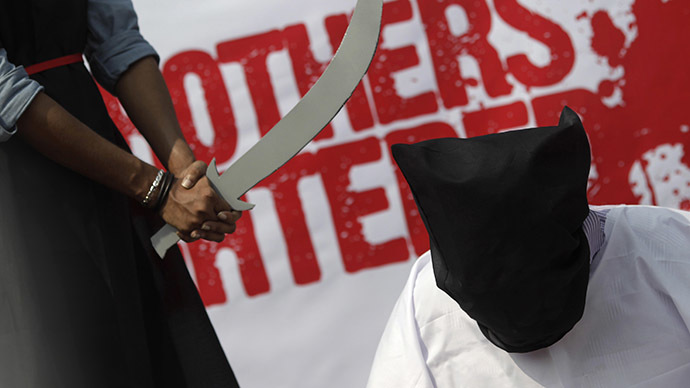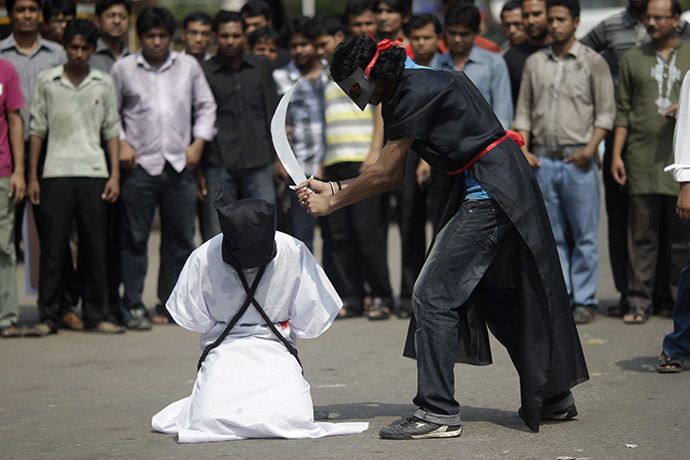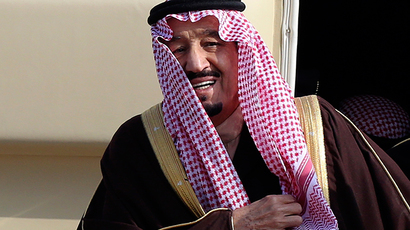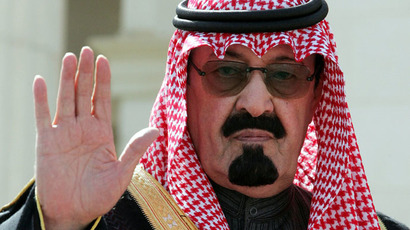4 beheaded in Saudi Arabia less than a week into King Salman's rule

Four people have been executed in Saudi Arabia less than a week after 79-year-old King Salman assumed power following the death of his 90-year-old predecessor, King Abdullah.
Under the strict guidelines of Sharia Law, three people were put to death across the oil-rich kingdom on Tuesday.
The first, Omar bin Yahya bin Ibrahim al-Barkati, was executed for the crime of incest in the southwestern Asir region, the Interior Ministry announced. “He was executed as punishment for his crime and as a lesson to others,” the ministry said in a statement.
The second victim, Yassir bin Hussein al-Hamza, also a Saudi, was executed in northwestern Jawf region for smuggling amphetamine pills, the ministry said.
In a separate case in the city of Mecca, Latif Khan Nurzada, a Pakistani national, was beheaded for smuggling heroin into the kingdom.
Prior to that, on Monday, Saudi Arabia executed Moussa al-Zahrani, a teacher convicted of raping several girls in the city of Jiddah – charges he denied.
“Mousa bin Saeed Ali al-Zahrani lured several underage girls and kidnapped them. He also threatened them and their relatives and physically assaulted them in his home,” Saudi Press Agency said, citing the Interior Ministry.

Despite being found guilty of luring underage girls, intoxicating them, and then sexually assaulting them, al-Zahrani created a 20-minute video claiming he was framed, in a last-ditch effort to save his life. The footage was intended for King Abdullah.
The case caused a stir on social media. An Arabic hashtag on Twitter which translated to “We are all Moussa al-Zahrani” exploded with comments by Saudis with conflicting opinions on the execution.
READ MORE: 7 shocking facts about Saudi Arabia under ‘modernizing’ reign of King Abdullah
The spike in executions coincides with US President Barack Obama's arrival to Riyadh on Tuesday at the head of a heavyweight US delegation which met with King Salman. The delegation included Secretary of State John Kerry and CIA Director John Brennan, signaling the strong ties between the two states.
#Obama leaves #Riyadh#Saudi Arabia after a visit that lasted 4 hours. Heads to Germany. pic.twitter.com/DNSk7KrGg2
— Zaid Benjamin (@zaidbenjamin) January 27, 2015
The trip to Riyadh was an “opportunity to both pay respects to the legacy of King Abdullah, who was a close partner with the United States and also to touch base on some of the issues where we’re working together with the Saudis,” US Deputy National Security Advisor Ben Rhodes told reporters.
So far this year, 16 people have died from the justice sword in the kingdom, AFP reported. Last year, 87 people were put to death. The death penalty can be imposed for a wide range of violations, including murder, rape, and false prophecy. Blasphemy, adultery, witchcraft, and sorcery can also result in beheading with a sword, or more rarely in an execution by a firing squad, or even stoning.
The kingdom has faced constant international criticism over its human rights record, including its use of the death penalty.














